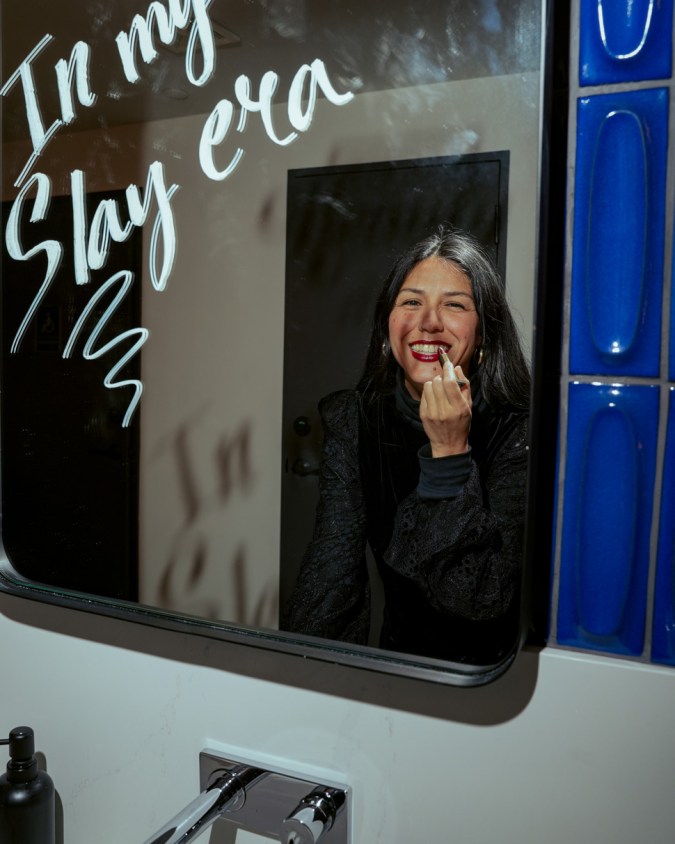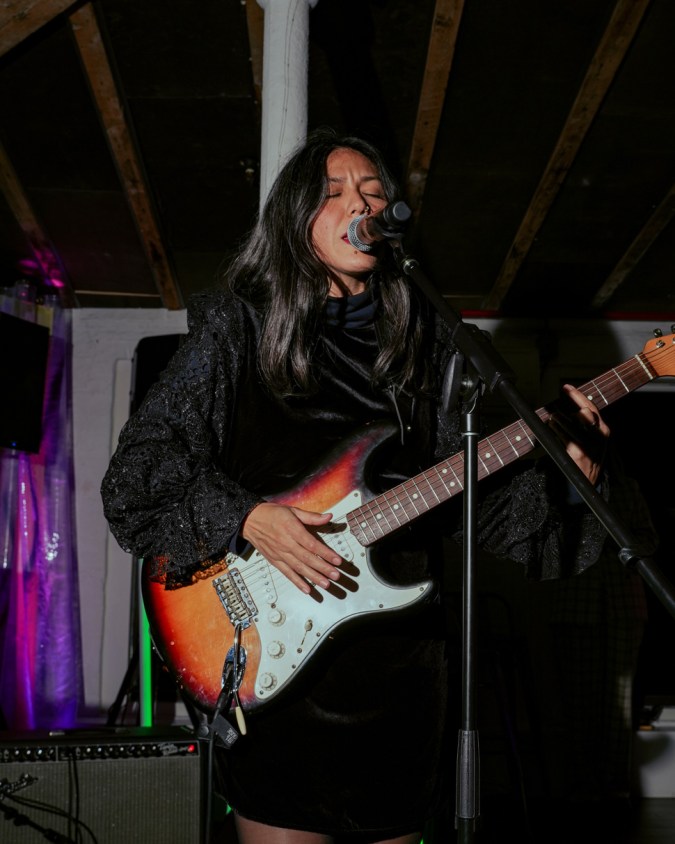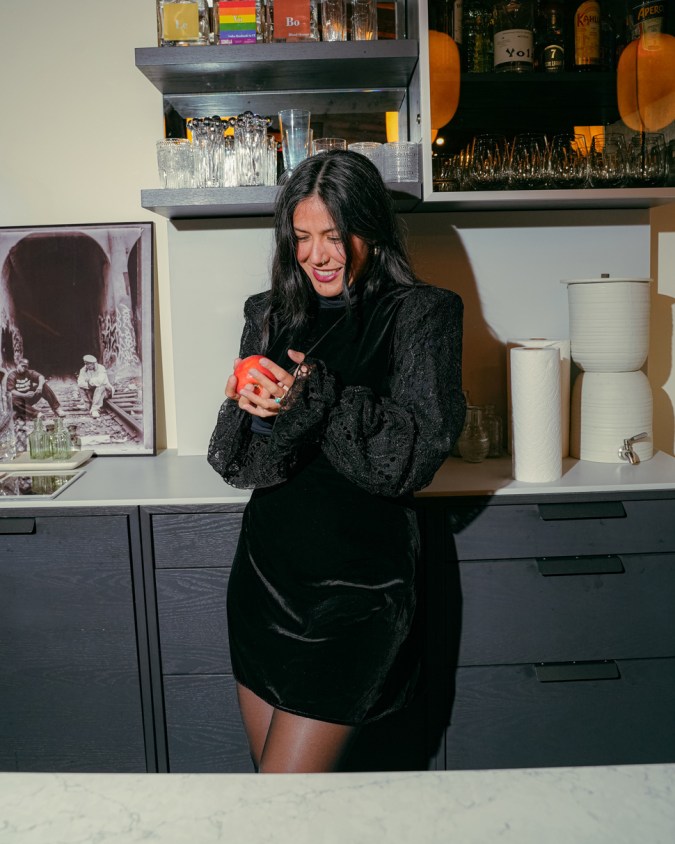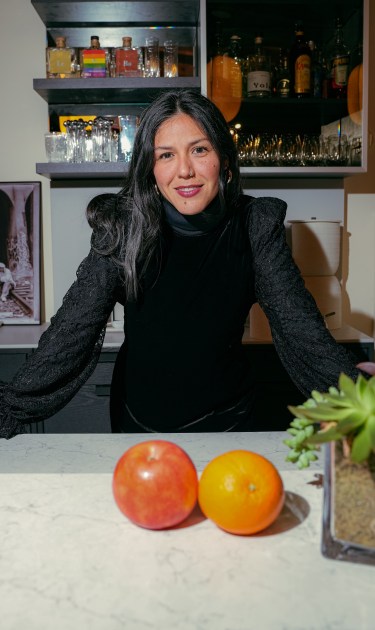This month marks a significant milestone in the musical journey of Musiana as she unveils her debut album, Son del Mar. Comprising eight meticulously crafted tracks, each a testament to her artistic evolution since 2021, Musiana invites listeners into a captivating realm where melodious strains intertwine with poignant storytelling. With a deft fusion of folk-pop and indie rock en español, embellished with glimpses of progressive soul, her sonic tapestry is nothing short of enchanting. Delving into themes of life (“Sirenas”) and love (“Edén”) and their relationship with each other (“Lilith”), Musiana demonstrates a lyrical depth that resonates with sincerity and introspection. It’s a road she began to go down and explore during her earliest songwriting days.
Growing up in the city of Barquisimeto in Venezuela, Musiana remembers her days when she got together with friends and performed in garage bands. Her father, an accomplished musician and teacher, moved to Florida in anticipation of bringing the rest of the family over once he was settled and gotten their paperwork together. That left Musiana, whose real name is Viviana Baptista, alone with her mother and siblings for years—a time when she felt “limited” in her options, she tells REMEZCLA. She got into college and began to study agronomy, not because of any particular passion for it, but because the school was the most convenient schedule-wise and a short distance from her home.

In 2007, at 19, Musiana and her family finally joined her father in the United States, settling down in Miami. She joined a local English for Speakers of Other Languages (ESOL) program, began attending classes, and spent her free time in her family’s garage. There, she set up a desk and computer, where she would sit for hours on end looking up songs on YouTube that she would then record herself covering or scribbling down song lyrics. “Looking back, I was probably depressed those days,” she laughs.

As she tells it, she used that time to let her mind wander and reflect on the ethereality of life. She refers to her “curiosity” as the main drive of the creative side of her life. “I think we all have these questions about life, too. But creatively, that’s what I follow, and also spiritually,” she says. “Asking myself ‘What the hell is happening?’ and ‘What the hell am I?’ has helped me better understand my relationships with everything: my surroundings, my friends, my listeners, my family, everything. Curiosity is what keeps me creative.”

Musiana began to fall in with fellow aspiring musicians in Miami, who were also starting off fresh and hungry to get their music out. She’d show up to open mics and attend jam sessions around the city. Inspired by the music of Natalia Lafourcade, Ivan Lins, and Stevie Wonder, she soon found herself recording at professional studios, putting down the music and lyrics that had been a part of her for so long. Word about her talents spread, and in 2018, she was invited to participate in so-called “secret sessions” where she and other singer-songwriters would meet established artists and workshop songs with them. In 2020, she was officially signed by Warner/Chappell as a songwriter, which has led to her penning various tracks for artists such as Thalía, Juanes, and Leslie Grace.

Curiosity is what keeps me creative.
Writing for others, as opposed to just solely for herself, she feels was instrumental to making her an even better artist. “It’s about empathy. You have to wear other people’s skin, in a way. You get to talk to them,” she shares. “You talk to them about what phase of their life they’re in, how did they feel when they woke up today, how are they feeling now?” The practice made her better attuned to understanding other people and, by that same token, allowed her to breathe fresh perspectives into her own lyrics.
Whether it’s crooning about the highs of requited love in “Estrellas” or marveling at the complexities of navigating modern love in “Rare,” Musiana applies the same tactic to herself when she puts pen to paper on her own solo songs. “Experiences from my real life definitely provoke in me the feeling of having to—and I’ll say it this way—throw them up, y’know? It’s something cathartic,” she shares. “And putting [those feelings] into words is a healing process, it’s very therapeutic.”


As part of the lead-up to Son de Mar, Musiana released a series of short vignettes and video essays to bolster the album’s message and give context to the thought processes that went into it. In one of them, she remarks about how she prefers to feel fear as opposed to staying stuck in a cycle. When prompted to elaborate, she digs into a deeper level of the existential questions that have always fascinated her. “My biggest fears have all revolved around death. ‘How am I going to die? What will that moment be like? What does that feel like?’ And all those thoughts have pushed me to realize one day I am going to die, and I have to accept it,” she says. “And that’s a big thing to accept and, in turn, embrace that I’m alive right now, and life is happening to us and all around us, and that’s beautiful. And I have to trust that whenever that moment comes, it happens painlessly, but for now, I’m enjoying life as best I can, as conscious as I can, and as aware as I am capable of.”
But beyond the act of looking into the abyss, Musiana expands on how this speaks towards a broader philosophy about facing her anxieties. It’s a message she hopes others can also incorporate into their own lives. “You run into situations that frighten you or make you anxious, but you have to lean into them because they’re never going to stop happening throughout life. And the fear never goes away, but you get better at going through it. You become familiar with it, and you know what to expect,” she says. “It’s an ego death. It’s hard because [these situations] activate your fight or flight instincts, and you convince yourself you can’t do something as if you could literally die, but the only thing dying is your ego.”
What Musiana can represent is a rebellious spirit, someone who says I’m not going to be quiet any longer. And all the potential that that brings with it.
Despite their origins in solemn thoughts, Musiana’s music is filled with optimism, whimsy, and a genuine love of joy and shared affection. Even as she sings about embracing her agency as she ends a relationship that threatened to constrain her (as in “Lilith”), her voice carries an enthusiasm for what might come next. As always, curiosity is her center. “I think what Musiana can represent is a rebellious spirit, someone who says I’m not going to be quiet any longer. And all the potential that that brings with it,” she says. As Son del Mar takes its place in the musical landscape and whatever future projects await, it doesn’t seem like she’ll ever have a shortage of inspiration and muses. “To me, the mystery [of life] generates curiosity in me, and so I write.”




